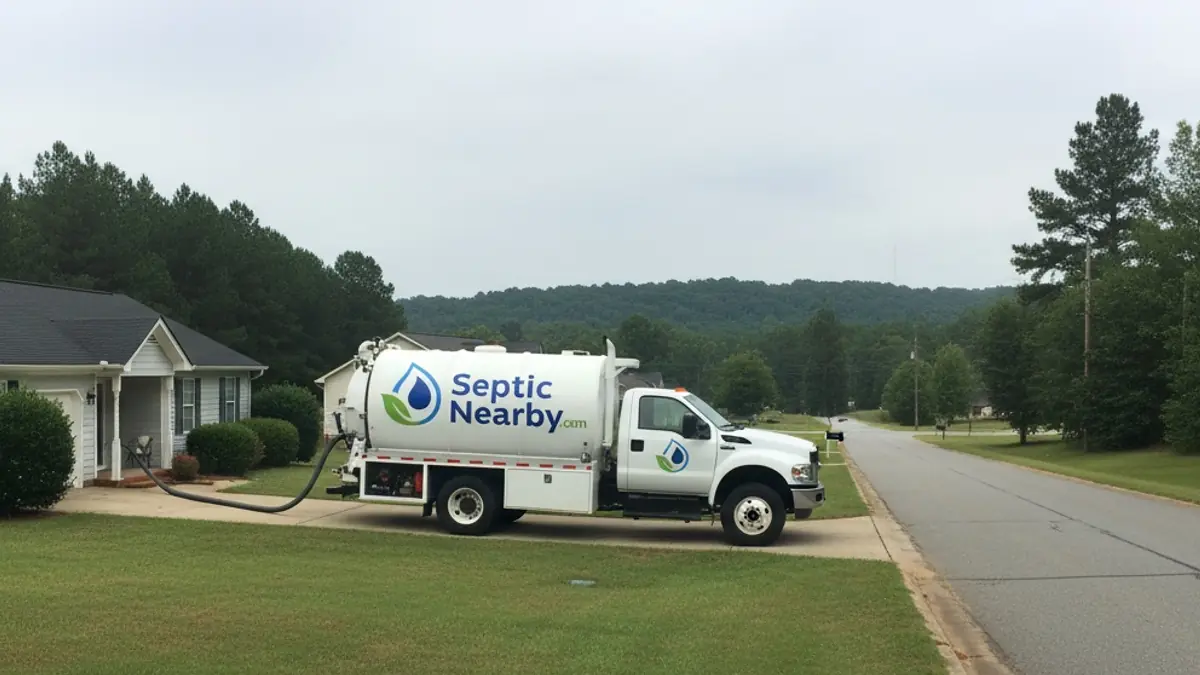Septic Pumping Services in Long County, GA
 Photo Illustrative
Photo Illustrative+1-470-9-SEPTIC
Operators available 7 AM - 9 PM
Licensed & Insured • No Obligation • Emergency Service Available
Cities We Serve in Long County
Local Septic System Factors in Long County
Your Guide to Septic System Stewardship in Long County, GA
Welcome to Long County, a place defined by its sprawling pine forests, quiet rural homesteads, and the rich bottomlands that feed into the Altamaha River basin. Here in communities from Ludowici to Tibet, life is deeply connected to the land. For the majority of homeowners, that connection runs right through the backyard, to an on-site wastewater treatment system—your septic tank and drain field. This system isn't just a personal convenience; it's a critical piece of infrastructure that protects our family's health, our neighbors' wells, and the delicate environmental balance of our coastal plain ecosystem.
Unlike municipal sewer systems that pipe waste to a central treatment plant, your septic system is a self-contained, biological powerhouse. It's your responsibility to maintain it. Here in our humid subtropical climate, with annual rainfall averaging nearly 50 inches, a neglected system can quickly become a significant problem. Saturated soils during our heavy summer thunderstorms can overwhelm a poorly maintained drain field, leading to backups, surface pooling, and the release of untreated effluent. This isn't just an unpleasant mess; it's a direct threat to our groundwater, the source of drinking water for most of the county.
Understanding our local geology is the first step toward effective septic management. The Long County Soil Survey, a resource often used by our local UGA Extension office, reveals a complex tapestry of soils. We have large areas of sandy loam topsoil, which allows for good initial drainage. However, these are often underlain by dense clay loam or hardpan layers. This subsoil structure can impede the downward percolation of water, creating what soil scientists call a 'perched water table.' When your drain field can't drain effectively, it fails. The system's ability to hold water, its 'field capacity,' is exceeded, and wastewater has nowhere to go but up to the surface or back into your home. This is why a proper site evaluation and perc test are non-negotiable for any new installation or major repair.
Properly managed, a septic system is incredibly effective. But when it fails, the consequences ripple outward. The primary concern is 'nutrient loading,' where excess nitrogen and phosphorus from wastewater enter the environment. These nutrients can fuel algae blooms in local ponds and slow-moving creeks, depleting oxygen and harming fish populations. Bacteria and pathogens can contaminate shallow wells, posing a serious health risk. For our agricultural producers, a failing septic system on an adjacent property can be a source of contamination for surface water used for irrigation or livestock. Maintaining your system is a fundamental act of being a good neighbor and a good steward of the land we all share.
This guide provides a starting point. It's built on research-backed best management practices (BMPs) and tailored to the specific conditions we face here in Long County. Whether you're a new homeowner just outside Ludowici trying to locate your tank lid for the first time or you've been on your land for generations, understanding your septic system is key. It involves more than just calling for a pump-out when there's a problem. It means knowing what goes down your drain, protecting your drain field from compaction, and scheduling regular inspections and pumping with trusted local professionals like J&J Septic Waste Services LLC or Ben's Septic Services, who understand the challenges of our local soils and high water tables. Your diligence protects your investment, your family's health, and the future of Long County's natural resources.
Frequently Asked Questions in Long County
Key septic regulations in Long County?
The primary authority is the Long County Board of Health's Environmental Health office. They enforce state regulations. A construction permit is mandatory for new systems and any major repairs or alterations, like replacing a tank or drain field. Routine pumping does not require a permit.
Average pumping cost across Long County?
The cost to pump a septic tank typically ranges from $325 to $600. Prices vary based on tank size, the travel distance to your home (especially for remote rural properties), and ease of access. A long driveway, difficult-to-locate tank lid, or the need for extra hose can increase the cost.
How often to pump septic systems in the county?
The general recommendation is every 3 to 5 years. However, in Long County, this can vary. Households with more occupants, use of a garbage disposal, or properties located in areas with a high water table or poorly draining clay loam soils should consider a more frequent schedule, such as every 2 to 3 years.
Weather and scheduling in Long County?
Avoid scheduling septic work during the wet summer season (June-September) if possible. Saturated soils make it difficult for your drain field to function and can lead to heavy equipment damaging your lawn or getting stuck. The ideal time for pumping or repairs is during the drier periods of fall and winter.